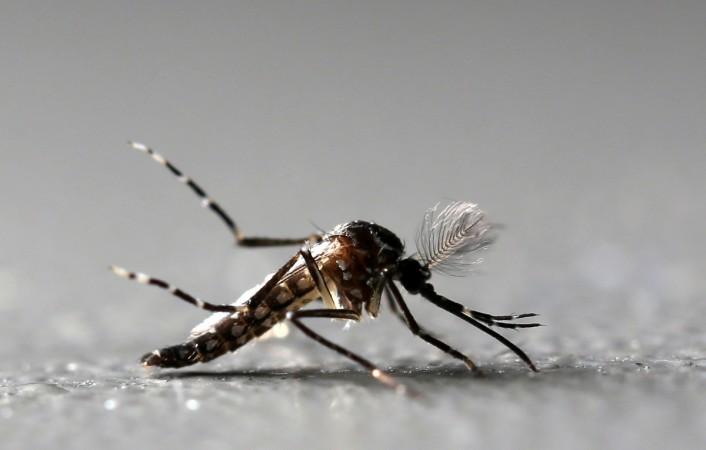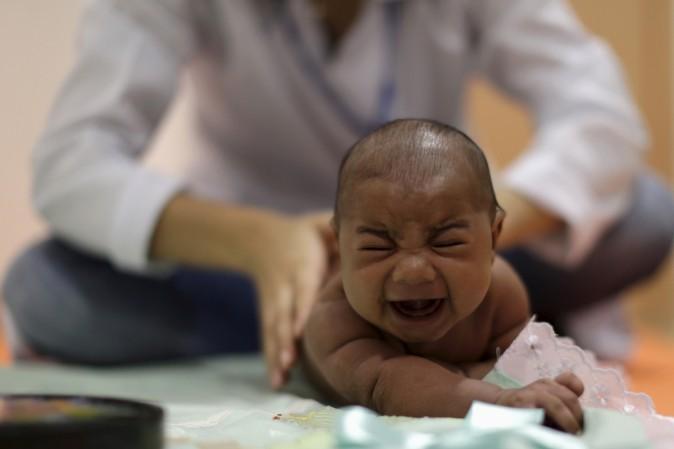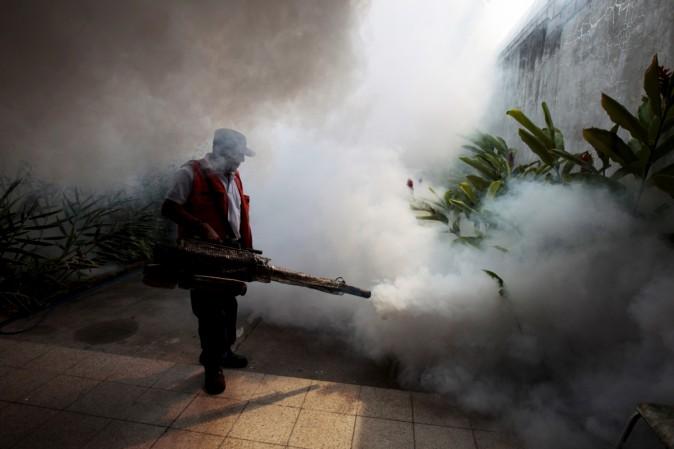
The World Health Organisation (WHO) on Saturday, May 27, revealed that the potentially deadly Zika virus has penetrated India, and has has already infected three people in Ahmedabad, Gujarat.
The United Nations's health agency disclosed that the virus was detected in India almost six months ago, in January, 2017. The Union Health Ministry, however, has remained silent on the issue, even though it reportedly conducted laboratory tests to confirm the virus months back.
The ministry has still not issued an official press release or any response to the virus outbreak.
Zika virus is a mosquito-borne disease which spreads through the bite of an infected mosquito and could be potentially deadly. The scientists have also found out that the virus can cause microcephaly, a condition where an infant's head is not properly developed, and the Guillain-Barré syndrome, which makes people paralysed.
Reports state that all the three cases of the virus are from the Bapunagar area in Ahmedabad district, and one of cases includes a pregnant woman.
The WHO confirmed the outbreak of the Zika virus on their website on Saturday, listing all the three cases in India and the response from public health departments across the country.

Union Minister of State for Health Anupriya Patel in March had told reporters that only one case of the Zika virus has been detected in the country.
"So far, only one case of laboratory-positive Zika virus disease has been detected in Ahmedabad, India as part of routine laboratory surveillance in January 2017," Patel had said. "The required containment measures were taken up as part of the protocol and intensified detailed surveillance both in humans and mosquitoes in and around Ahmedabad and Gujarat did not show any further positive cases."
Despite three cases of the virus in the region, only one was reported in March. A senior health official, responding to the issue said: "While two cases were picked up in January for testing and the third in February, only one confirmed case had been detected while replying to the Parliament."

"WHO had declared that Zika was no longer an international public health emergency in November 2016. Three suspected cases were picked up, and were eventually tested for Zika after they tested negative for Dengue and Chikungunya, we were not bound to make information public as the emergency had been announced over," the official told DNA.
"The WHO later asked for a detailed report which we made available to them and it was later hosted on their website," the official said. The official added that there is no cause to worry as the subsequent 30,000 samples, including that of pregnant mothers, children, those with acute febrile illnesses and that of mosquitoes had turned out to be negative.
Symptoms of Zika virus include: mild fever, skin rash, conjunctivitis, muscle and joint pain, malaise or headache. These symptoms normally last for 2-7 days.
The Indian Council of Medical Research (ICMR) reportedly has tested 34,233 human samples and 12,647 mosquito samples for the presence of Zika virus. Out of these cases, at least 500 mosquito samples have been collected from Bapunagar area in Ahmedabad district of Gujarat. All of them were found to be negative.

















